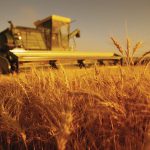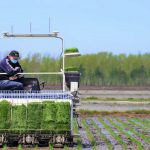Smart farming is an emerging technology that is changing the way we grow food. By using sensors and data analytics, farmers are able to optimize their crops and yield higher quality, healthier food. Not only is this good for the environment, but it’s also good for our health!
So how does it work? Smart farming AKA precision agriculture uses sensors to collect data about the environment, including things like temperature, humidity, and soil moisture. This information is then analyzed by data software to help farmers make decisions about how to care for their crops. For example, if the data shows that the soil is too dry, the farmer can use irrigation to water the plants.
This technology is still in its early stages, but it has the potential to revolutionize the way we grow food. In the future, smart farming could help us produce more food with less water and land
Why is smart farming important?
It is important for a number of reasons. First, it can help farmers be more efficient and productive. By using data and technology, farmers can make better decisions about things like irrigation, fertilization, and crop rotation. This can lead to increased yields and improved quality of food.
Second, smart farming can help reduce the impact of agriculture on the environment. By using things like precision agriculture and sustainable management practices, farmers can minimize the amount of water, land, and energy required to produce food. This can help reduce agriculture’s carbon footprint and lead to a more sustainable future.
Third, smart farming can help improve the lives of farmers. By using technology to automate tasks and make information more readily available, farmers can spend less time on manual labor and more time on other activities, like spending time with family or pursuing other interests.
What are the benefits of smart farming?
There are many benefits to this type of farming, including increased crop yields, improved water efficiency, and reduced labor costs. Smart farming is also good for the environment, as it can help to reduce greenhouse gas emissions and improve soil health.
In addition to all of these benefits, it is also just plain fun! It’s a great way to learn about new technology and to have a little bit of friendly competition with your neighbors. So why not give it a try? You might be surprised at how much you enjoy it.
How can you get started with precision agriculture?
Today, there are more ways than ever to get started with smart farming. This can include anything from GPS-guided machinery to mobile apps that help farmers track their crops.
The best way for you will depend on your specific needs and goals. However, there are a few steps you can take to get started:
- Educate yourself on the different types of smart farming technology and how they can be used.
- Talk to other farmers and agricultural professionals about their experiences.
- Invest in some key pieces of farming technology, such as GPS-guided machinery or a mobile app like Badoomapp for crop tracking.
What are some things smart farmers should consider when implementing precision farming?
When it comes to precision farming, there are a few key things to keep in mind. First, you’ll need to have the right equipment. This includes sensors, weather stations, and irrigation controllers. You’ll also need to have a good understanding of your crops and soil. This data will help you determine the best way to care for your crops.
Another important thing to consider is your workflow. Smart farming can help you automate tasks, but you’ll need to have a plan for how everything will work together. Finally, you’ll need to be prepared for change. Smart farming can be a big adjustment, so it’s important to be ready for anything.

Objectives of smart farming
There are a few objectives smart farming faces in terms of widespread adoption. First, its technology is still relatively new and thus can be expensive. Many farmers may not be able to afford to invest in the latest and greatest technology for E-agriculture. Additionally, the technology it uses requires a reliable internet connection, which can be difficult to come by in rural areas. Finally, some farmers may be resistant to change and thus unwilling to adopt new technologies, even if they could potentially benefit from them.
Conclusion
In conclusion, smart farming is an innovative new way of farming that incorporates technology to improve efficiency and yield. While it is still in its early stages of development, it has great potential to revolutionize the agriculture industry. If you enjoyed this blog post, please leave us a comment and rate it.



